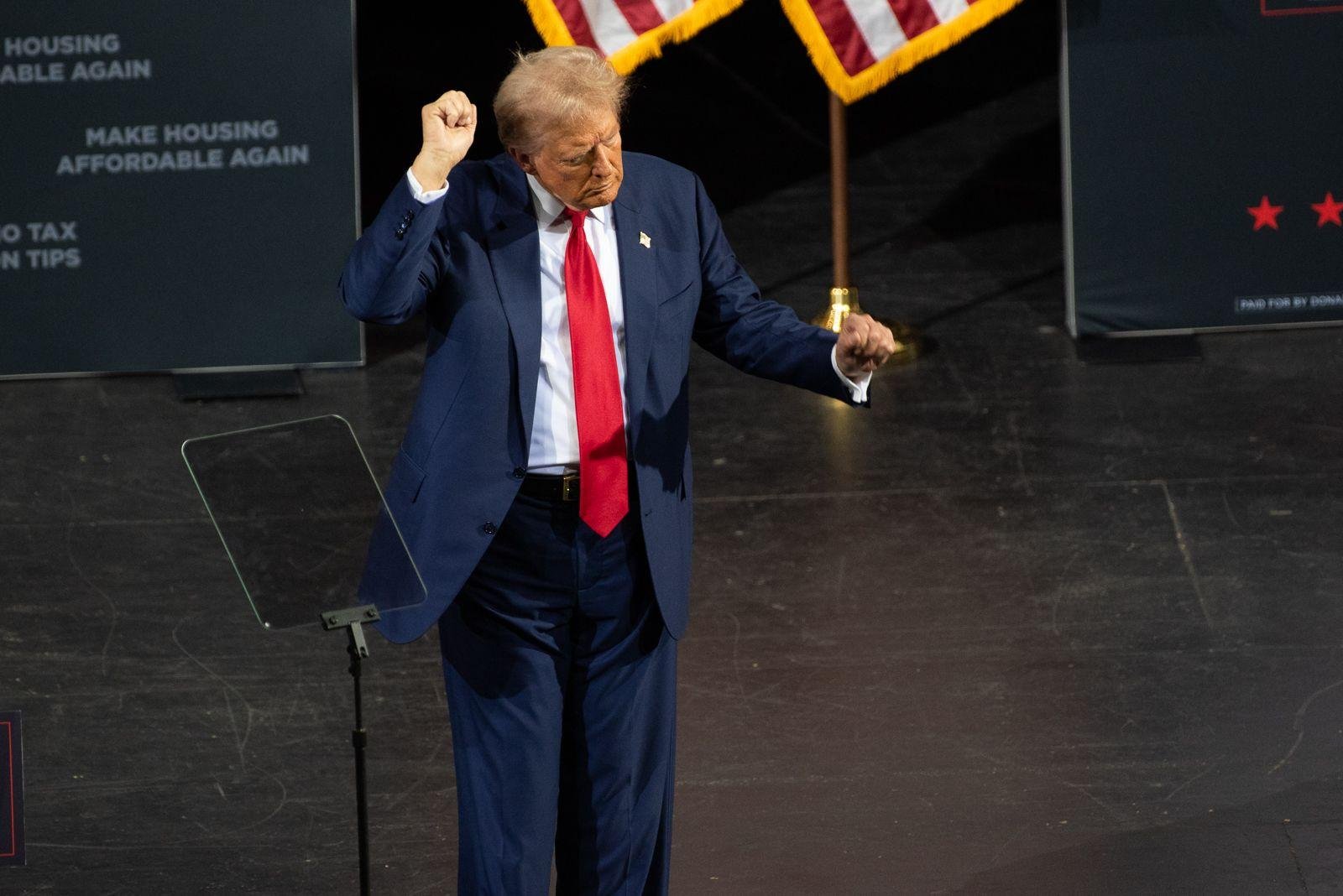border
Tucson’s Rollercoaster Ride: Is “#MAGA” Making Waves or Just Passing By?

Following Christmas, I took my dog Ragnar for a stroll around my apartment complex. Amid the routine, two young children, likely ages three and six, excitedly rushed toward us, exclaiming, “A puppy! A puppy!” Their delight in petting my dog was genuine, a shining moment amidst the complexity of the world.
However, a sudden shift in my mood emerged as I reflected on the children’s backgrounds. Being from Africa, their future is uncertain, particularly with the potential consequences of the president’s proposed mass deportation plan looming on the horizon. This policy underscores a stark contrast between innocence and political realities.
Donald Trump’s rhetoric about initiating a second American revolution conveys his ambitions for extensive changes—Project 2025 offers bold promises. Yet, beyond the grandstanding, his administration appears intent on wielding federal authority to influence state and local governments, all while shifting focus away from pressing economic issues like inflation. Instead of tackling grocery prices, Trump seems preoccupied with enforcing ideological compliance within governance.
The transformative agenda suggests a plan to radically reshape the federal government, but history shows that presidential promises of revolution often yield incremental change. Trump’s following is fervently loyal, yet as his presidency progresses, high-stakes drama may overshadow genuine accomplishments.
Recent developments indicate Trump may struggle with issues like immigration; his collaboration with Elon Musk on skilled migration policy hints at friction with his base, which historically has been anti-immigration. His current predicament reveals complications in navigating his administration’s priorities.
While Trump’s past administration faced numerous challenges, including allegations of a “Deep State” undermining its effectiveness, his current team may be overestimating the appetite for sweeping reforms promised in the past.
Tucson is gearing up for a significant vote on a half-cent sales tax in March, intertwined with law enforcement and housing initiatives. Yet, the city’s economic health is precarious, particularly with looming trade tensions that could destabilize Southern Arizona’s economy.
The rising cost of living—the average rent is now $1,307—compounds concerns about the local economy. If a recession strikes, voters may oppose the sales tax, limiting essential resources to buffer against economic downturns.
Trump’s immigration stance, particularly advocating for mass deportation, adds complexity to housing issues. While he claims such actions could alleviate supply shortages, they would likely hinder construction by disrupting the workforce.
The Regional Transportation Authority plans to present a $2.4 billion investment proposal in fall 2024. However, potential trade wars with Mexico could derail these plans, plunging local economies into deeper crises. Fragile relationships influenced by nationalistic sentiments could further complicate trade and transportation initiatives.
Moreover, the impending decision-making in Congress surrounding budget impoundment policies could drastically affect federal funding allocations. Trump’s threats to withhold federal grants could impact local law enforcement and education—Tucson schools alone rely on significant federal support.
If the U.S. Department of Education were dismantled under Trump’s administration, the repercussions for schools serving low-income families could be dire, potentially exacerbating existing inequalities within the education system.
The University of Arizona, a crucial economic entity for Tucson, faces imminent challenges if federal funding and support disappear. Trump’s hostility toward perceived liberal education could have long-lasting effects on research and funding initiatives that are already in progress.
In what has become a chaotic political landscape, Trump’s potential enforcement of contentious policing practices could further strain local budgets and resources. The implications of such strategies would likely burden taxpayers without ensuring public safety.
The potential for mass deportation remains a pivotal concern, resonating deeply within communities across Tucson. A contemplated deportation plan affects not only the individuals targeted but also the social fabric and economy of the region, raising questions about a future shaped by fear and uncertainty.
As we brace for potential upheaval, it’s essential to recognize that many of these policies and plans are fundamentally unnecessary. They serve more to generate outrage than to constructively address America’s economic challenges. In a climate where political posturing often overshadows practical solutions, clarity about the implications of these decisions will be vital.
The outcome of these intertwined issues remains to be seen, but one thing is clear: navigating this landscape requires vigilance and an awareness of how national policies ripple through local communities. In the face of uncertainty, the stakes are undeniably high for everyone involved.


















